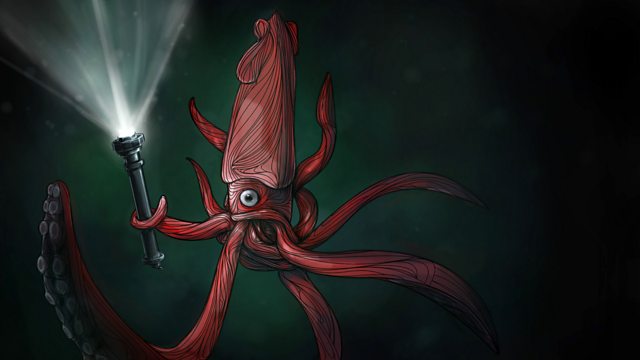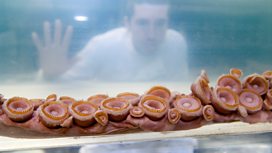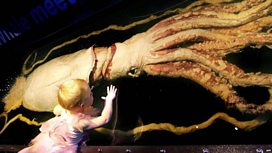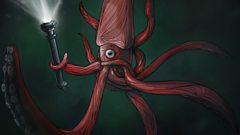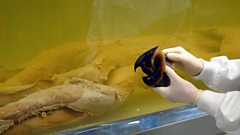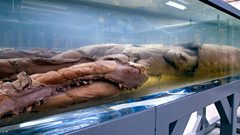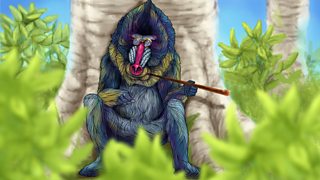Giant Squid
Brett Westwood delves into the mysteries surrounding giant squid to ask why it's portrayed as a Kraken lurking in the deep when modern studies show a timid, misunderstood creature.
Brett Westwood tries to uncover the truth about the elusive giant squid. Is it the monster literature portrays lurking in the deep of the ocean or a timid misunderstood creature?
Tennyson evokes the deep, slumbering Kraken as a monster lurking in the cold, dark depths of the ocean. Twenty Thousand Leagues brings that monster into focus as it tries to drag a ship underwater and devour the terrified crew. Where did these stories come from? The Odyssey was the first known piece of literature to suggest a tentacled beast of the sea and it has never left our imagination. Yet when a giant squid was filmed by Japanese scientists, and then one was fished out of the ocean near the Falklands, we saw that giant squid are extraordinary, rather beautiful creatures.
Far from being a terrifying monster they peck delicately at their food and are afraid of loud noises. For a monster they are remarkably timid. With recent discoveries and increasing knowledge have we vanquished the monster from the deep? Or will our need for monsters mean we create another, even stranger beast? Or perhaps now that our sea-faring days exploring the unknown oceans are over, will our monsters come from outer space, the last frontier? Will we always need a monster to scare us? Many academics say yes - if you want to know what a society is frightened of, look at its monsters.
Originally broadcast in a longer form 23 June 2015
Original producer Sarah Pitt
Archive producer Andrew Dawes for ����ý Audio in Bristol
Last on
![]()
Yes, they really do have beaks and doughnut-shaped brains.
![]()
Series producer Mary Colwell wonders what draws us to monsters.
Clips
-
![]()
The World According to Giant Squid
Duration: 01:23
-
![]()
Is the giant squid a monster?
Duration: 02:06
-
![]()
Archie the female giant squid
Duration: 01:07
Jon Ablett

One of the specimens under Jon’s care is . It was Jon’s responsibility to design, manage and implement the preservation, storage and display of this enormous creature.
Archie was caught off the Falkland Islands in 2004 and is on display in the Tank Room. Molecular samples taken from this specimen were used in a study which showed that there is only one world-wide species of giant squid.
Jon’s main interests are in the biodiversity of south-east Asian and South/Central America land snails. He has as well as frozen tissue and viable cells for our molecular collections.
Dr Emily Alder

She has published on William Hope Hodgson, H. G. Wells, sea monsters, and late twentieth-century science fiction, and is co-editor, with Dr Sara-Patricia Wasson, of . Emily is also Assistant Editor for the journal .
Dr Mathias Clasen

He has shown how that have their roots in ancient biological adaptations, which evolved in response to the many natural dangers faced by our evolutionary ancestors.
Dr Edith Widder

Her innovations have produced footage of rare sharks, jellyfish, and crustaceans, as well as led to the discovery of a new species of large squid and , Architeuthis, in its natural habitat. She is co-founder of the , a not-for-profit which develops technological solutions to ocean conservation challenges.
Broadcasts
- Tue 23 Jun 2015 11:00����ý Radio 4
- Mon 29 Jun 2015 21:00����ý Radio 4
- Sun 12 Mar 2023 06:35����ý Radio 4
Featured in...
![]()
Natural history on Radio 4—Natural Histories
A collection of programmes about natural history.
